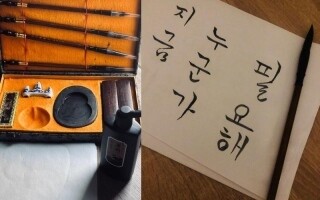
In South Korea, the popularity of the hand-written letter tradition is beginning to gain traction as a form of expression in the rapidly digitizing world. According to the Korea Herald, many Koreans have started practicing a new habit known as "pilsah," which involves writing excerpts from books by hand.
One woman, Park, who recently started engaging in this process, says: "Slow writing by hand helps me think deeply about the message and remember it for a longer period." Recently, a variety of specially designed books for teaching handwriting have appeared in the market.
Li Seon Hi, an editor of a book, notes that the idea was developed primarily in 2021 with the aim of providing practical content that people could easily incorporate into their daily lives. "At that time, due to the pandemic, many people discovered that they spend more time at home in solitude.
The books include a text structure on the left page and blank space on the right, allowing readers to handwrite excerpts. While previous "pilsah" books mainly focused on poetry and prose, recent editions have become noticeably more diverse.
This trend now encompasses a wide spectrum of literary genres, from well-known quotes and philosophical works to novels and texts by famous musicians. According to Cube Books, the number of new "pilsah" books has increased from 57 in 2023 to 81 in 2024 - a 42% rise.
As a result, Li Seon Hi believes that people have begun to concentrate more on practical actions that can be performed in short, manageable time frames. She added that, judging by the spread of this habit, handwritten letters will not disappear anytime soon.
Sales of "pilsah" books have surged by 692.8%. This trend has gained widespread recognition on social media platforms, where the number of posts on Instagram with the hashtag "pilsah" increased from 650,000 in September 2023 to 701,000 by March 2025. A representative of Cube stated: "We are observing a resurgence of traditional books, especially among young people in their twenties to thirties."













